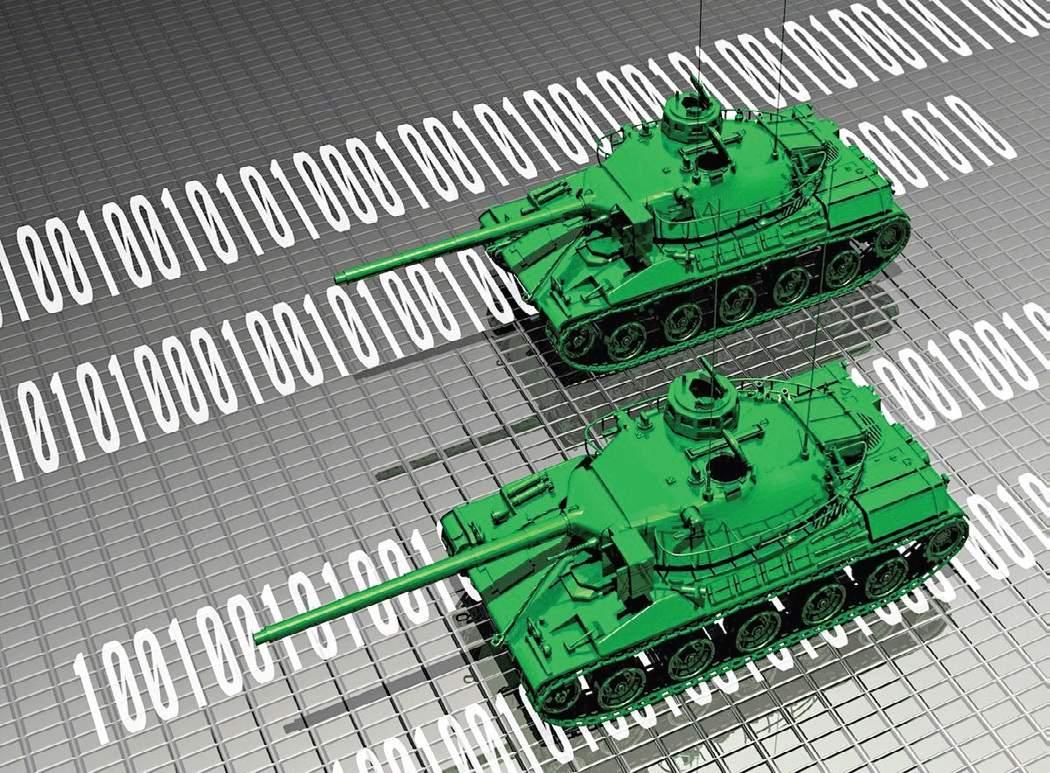Currently Russia is increasing propaganda influence on the Western public through the use of such powerful media resources as RT and Sputnik.
 Due to Russia’s involvement in more and more frequent cyber-attacks on key informational resources of a number of European states a conclusion can be made that Russia opened a second, informational frontline in hybrid war with a civilized society.
Due to Russia’s involvement in more and more frequent cyber-attacks on key informational resources of a number of European states a conclusion can be made that Russia opened a second, informational frontline in hybrid war with a civilized society.
Not too long ago virtually all leading mass media, politicians and experts discussed a starlet – attack on servers of the executive team of USA Democratic Party. According to a number of experts, that is the fact which coupling with aggressive Donald Trump support in social networks played the decisive role in his election win, while the leading US sociological agencies recorded substantial lag in ratings. Though elections in the USA as well as inauguration of the new President are an accomplished fact, the problems of Russian interfering into US election process and its startling efficiency are still extremely pressing.
2017 is a year of fateful elections in Europe. Elections in Netherlands are planned on March, in France – on April, in Hungary – on May, later in September federal elections will be held in Germany and in October – parliamentary elections in Czech Republic. Their results affect future of not only these states but also the EU as a whole. Far sighted politicians and political strategists are beating an alarm. Thus, the concerns about repeating the American scenario in Germany are voiced with increasing frequency. These concerns can hardly be referred to as groundless as on the one side print press is riddled with adverse publications addressing the main Kremlin’s opponent – Merkel, on the other – the voices in support of the positions of dedicated leader of PEGIDA are increasingly loud.
In France which one of the first opens the election season in Europe the situation can be described as catastrophic for the EU though extremely favorable for Russia. Vox populi leadership in these latter days belongs to two pro-Kremlin’s candidates – leader of the National Front Le Pen and republican, ex-prime minister Fillon. Suddenly situation took a twist – Le Pen became losing her rating just because she hit the election campaign in January, moreover, losing it upon her own fault. The expression “Sometimes keeping silence matters” fits the best for her election campaign. Everything recently said and done by the leader of the National Front only decreases her rating. She is supported by the main body of the party, adhered to her for 10 years, however, that is no more than 30 % of voters. This support is quite sufficient to go forward to a second round of voting, but not for a victory.
As for François Fillon, he fell a victim of own greedy and pettiness. Being prosperous even by French standards, he, the owner of magnificent castle on Loire bench, descended to pay salary to his wife and son from the state treasury. And against the background of these two characters the star of 39-year ex-minister of economy Emmanuel Macron, who currently has a commanding lead in public opinion polls, ascended.
In such a situation Russia gravely strengthens its presence in French information frontline, exerting violent efforts in order to “sink” Macron in disinformation stream and bring compromised Le Pen and Fillon at any price to the top of the rating.
Awareness of the threats of Russian information attack has come to Europeans at the level of comprehension; however, apparent confusion is traced in their actions.
On the upcoming March elections the government of Netherlands decided to give up on using computers for vote counting and declared that the voting results shall be calculated by hand amid fears the programs for vote counting may be hacked and subjected to manipulations of foreign security services.
Situation in Netherlands is in the best way possible illustrated by the words of interior minister Ronald Plasterk: “Now there are indications that Russians could be interested, for the following elections we must fall back on good old pen and paper”.
Similar confusion currently prevails in Denmark which officially claimed Russia the threat in cyber espionage, in Norway which officially declared that a number of political parties and state officials were subjected to cyber-attacks, in Italy where the Russia was also suspected year earlier in four-month attacks on the servers of the ministry of foreign affairs.
All this testifies the fact that notwithstanding Russia’s relations with Westerns states it keeps the same tactics. It doesn’t matter how the states and their leaders treat Russian policy and whether they support Russia in the international field – Russia equally aspires to wreak the havoc and destroy existing order both in the states loyal to it and in those which express uncovered dissatisfaction with its actions. Ahead of a series of elections awareness of each European state of the threats and ways to prevent them will be of fateful significance for the whole Europe.
